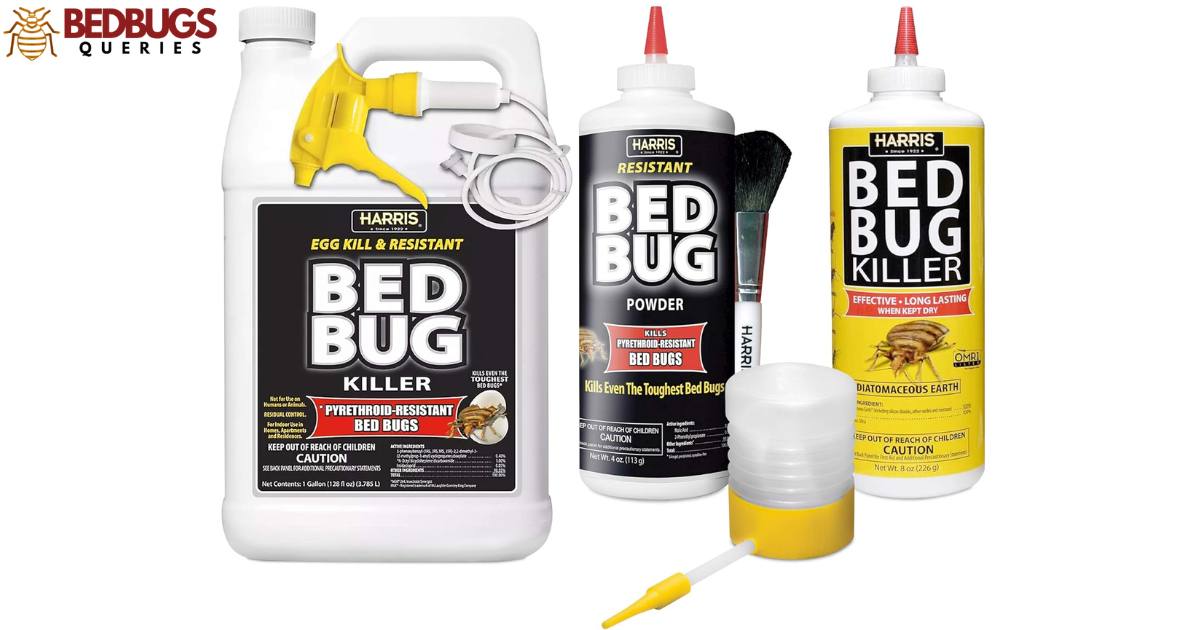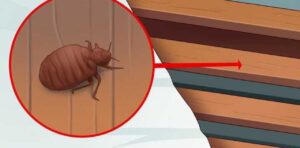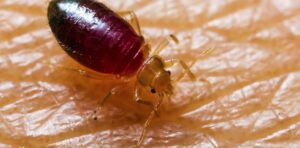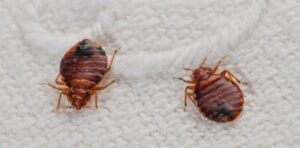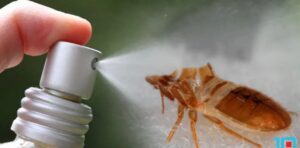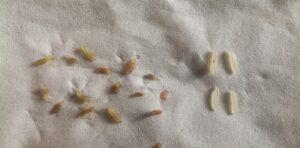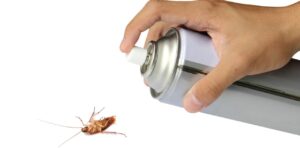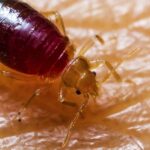Harris Bed Bug Killer Safe For Pets is a product designed to eliminate bed bugs while ensuring the safety of your pets. It is formulated with ingredients that are non-toxic to animals, making it a reliable choice for households with pets. This solution effectively eradicates bed bugs from your home without posing any harm to your furry companions. It provides peace of mind for pet owners dealing with bed bug infestations.
Harris Bed Bug Killer is a trusted pest control solution that effectively targets and eliminates bed bugs in your home. But what sets it apart is its unique formula designed with the well-being of your pets in mind. Worried about harmful chemicals? Stay with us to discover how Harris Bed Bug Killer ensures the safety of your furry friends.
To address the concerns of pet owners, we’ll provide you with informative details about the product’s ingredients and application methods. Understanding its safety measures and precautions will help you make an informed decision on whether Harris Bed Bug Killer is the right choice for you and your pets.
Introduction To Harris Bed Bug Killer And Pet Safety
Harris Bed Bug Killer is a trusted solution for eliminating bed bugs from your home. This effective product is designed to target and eradicate bed bugs, their eggs, and nymphs. It comes in various forms, such as sprays, powders, and bed bug traps, making it easy to use in different situations.
When it comes to pet safety, it’s essential to be cautious while using any pest control products. Harris Bed Bug Killer is generally safe for pets when used as directed. However, it’s vital to keep your pets away from treated areas until the product has dried completely to ensure their safety. Always follow the instructions on the product label and take necessary precautions to protect your pets while addressing bed bug infestations in your home.
Key Ingredients In Harris Bed Bug Killer

Harris Bed Bug Killer contains potent ingredients that ensure effective bed bug elimination. The key components include diatomaceous earth, an all-natural substance derived from fossilized algae. This fine powder acts as a desiccant, dehydrating bed bugs by absorbing their protective waxy layer, leading to their demise.
The Harris Bed Bug Killer also contains deltamethrin, a synthetic pyrethroid that kills bed bugs on contact. This chemical targets the nervous system of the bugs, causing paralysis and eventual death. When combined with the long-lasting diatomaceous earth, the Harris Bed Bug Killer provides a two-pronged attack on these pests, making it a reliable solution for bed bug infestations.
Understanding The Potential Risks For Pets
Understanding the potential risks for pets is essential. Many common household items can harm them. Foods like chocolate and grapes are toxic. Plants like lilies can be dangerous. Even everyday items like electrical cords pose risks. Knowing these dangers can prevent accidents.
Pets can also be harmed by human medications. Keep pills out of their reach. Chemicals like cleaners are hazardous. Store them securely. Awareness of these risks helps protect your beloved pets. Be vigilant and create a safe environment for them.
How Long Does It Take For Harris Bed Bug Killer To Dry?
Harris Bed Bug Killer typically takes around 30 minutes to dry completely. After applying the spray to affected areas, you should wait patiently for this brief period. This short wait ensures that the product forms a protective barrier against bed bugs and their eggs. Once dried, it remains effective for several weeks, safeguarding your home from these pesky pests.
It’s crucial to allow the Harris Bed Bug Killer to dry thoroughly to maximize its effectiveness. During this drying period, keep children and pets away from treated areas. This simple precaution helps ensure safety while making sure the product can do its job efficiently, providing you with peace of mind against bed bug infestations.
Alternatives To Harris Bed Bug Killer For Pet-Friendly Homes
When battling bed bugs in pet-friendly homes, it’s vital to explore alternatives to Harris Bed Bug Killer. The safety of our furry friends is paramount. One effective option is diatomaceous earth, a natural powder that dehydrates bed bugs, harmless to pets. Another choice is steam cleaning, which eliminates bed bugs without chemicals, keeping pets safe and your home bug-free.
Essential oils like lavender, eucalyptus, or peppermint can act as natural repellents. They won’t harm your pets and add a pleasant aroma to your home. For severe infestations, consult a professional pest control service that uses pet-safe treatments. These alternatives ensure a bug-free environment while safeguarding the well-being of your beloved pets.
Expert Opinions On Using Harris Bed Bug Killer Around Pets
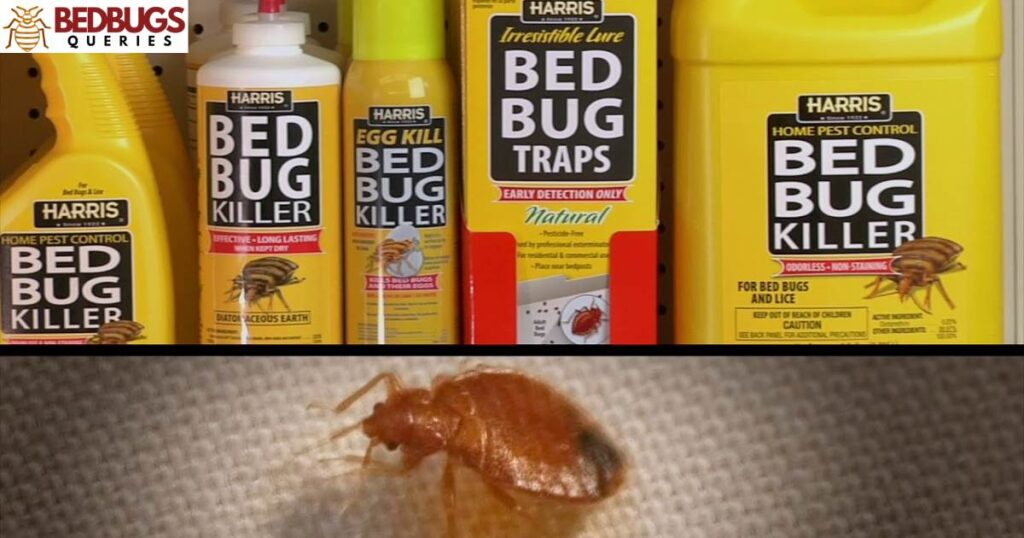
Many experts advise caution when using Harris Bed Bug Killer around pets. This product contains chemicals that can be harmful to animals. It’s crucial to follow the instructions carefully to minimize risks to your pets.
Some experts recommend keeping your pets out of treated areas until the product has dried completely. This can take a few hours. You should ventilate the room and wash any bedding or surfaces that your pets may come into contact with after using the product.
While Harris Bed Bug Killer can be effective in eliminating bed bugs, it’s essential to prioritize your pet’s safety. Consult with a veterinarian or pest control professional for specific guidance on how to use the product safely in a pet-friendly environment.
| Expert Opinion | Safety Precautions | Summary |
| Vet Advice | Keep pets away during application | Consult your vet for guidance. |
| Entomologist | Proper ventilation after use | Ensure thorough ventilation. |
| Pet Owners | Store it out of reach | Safely store Harris products. |
| Pesticide Pro | Follow label instructions | Adhere to product guidelines. |
| Environmentalist | Use pet-friendly alternatives | Explore eco-friendly options. |
| Toxicologist | Potential risks of exposure | Understand pet health concerns. |
Guidelines For Post-Application Pet Interaction
After applying for a pet adoption, there are crucial guidelines to follow for a smooth interaction. First, be patient and wait for the rescue or shelter’s response. They need time to review your application and find the best match. Keep your expectations realistic and remember that it may take some time.
Once you receive a response, schedule a meeting with the potential pet. It’s essential to meet in a neutral environment, like the shelter, to assess compatibility. Take your time to get to know the pet and ask questions about their behavior, needs, and medical history.
After the meeting, if you decide to adopt, follow all adoption procedures carefully. Pay the adoption fee, complete the necessary paperwork, and provide a safe and loving home. Pet adoption is a lifelong commitment, so ensure you’re ready for the responsibility and provide love and care throughout your life.
What Chemical Is In Harris Bed Bug Killer?
Harris Bed Bug Killer contains an active ingredient called deltamethrin. This chemical is a pyrethroid, a synthetic compound derived from chrysanthemum flowers. Deltamethrin is known for its effectiveness in killing bed bugs and other pests. It works by disrupting the nervous system of the insects, ultimately leading to their death.
In addition to deltamethrin, Harris Bed Bug Killer may also contain other inert ingredients to enhance its performance and safety. These ingredients help the product adhere to surfaces and provide long-lasting protection against bed bugs. When using this product, it’s essential to follow the manufacturer’s instructions carefully to ensure effective and safe bed bug elimination in your home.
Balancing Pest Control And Pet Well-Being

Balancing pest control and pet well-being is essential. Pets, like dogs and cats, are part of our families. They need a safe environment. Chemical pesticides can harm them if not used cautiously. To protect both your pets and your home, choose pet-friendly pest control methods. Look for non-toxic, organic options.
Regular cleaning and sealing entry points are prevention tactics. Keep your pets away from treated areas for a while. Pest control experts can offer guidance. Your pet’s well-being is just as important as a pest-free home. Strike a balance for a happy, healthy household.
Balancing pest control and pet well-being is crucial. Your pets rely on you for their safety. Common pesticides can pose risks to them. To use lemon juice to kill bed bugs, prioritize pet-friendly pest control methods. Seek natural, safe alternatives. Keep pets away from treated areas initially. Consult professionals for advice. A healthy, pet-friendly home is a happy home.
Frequently Asked Questions
Is Harris Bed Bug Killer safe for pets?
Harris Bed Bug Killer can be harmful to pets if ingested or inhaled, so use it with caution and keep pets away from treated areas.
How can I safely apply pesticides in a pet-occupied space?
To apply pesticides safely in a pet-occupied space, follow label instructions, keep pets away during application, and ventilate the area after treatment.
Are essential oils safe for pets in home applications?
Certain essential oils can be toxic to pets; consult a vet before using them, and ensure proper dilution and ventilation when using them.
What precautions should I take when storing cleaning products?
When storing cleaning products, keep them in a secure cabinet or area inaccessible to pets to prevent accidental exposure.
Conclusion
Harris Bed Bug Killer’s safety for pets, it’s clear that precautions are essential. This product can pose a risk if pets come into direct contact with it, so pet owners must exercise care and vigilance. By keeping pets away from treated areas, following label instructions, and ensuring proper ventilation, you can reduce the potential harm.
While Harris Bed Bug Killer can effectively address bed bug issues, it’s vital to recognize the potential risks it poses to your beloved pets. By acting responsibly and implementing safety measures, you can strike a balance between pest control and pet protection, ensuring both a bug-free home and a safe environment for your furry companions.

